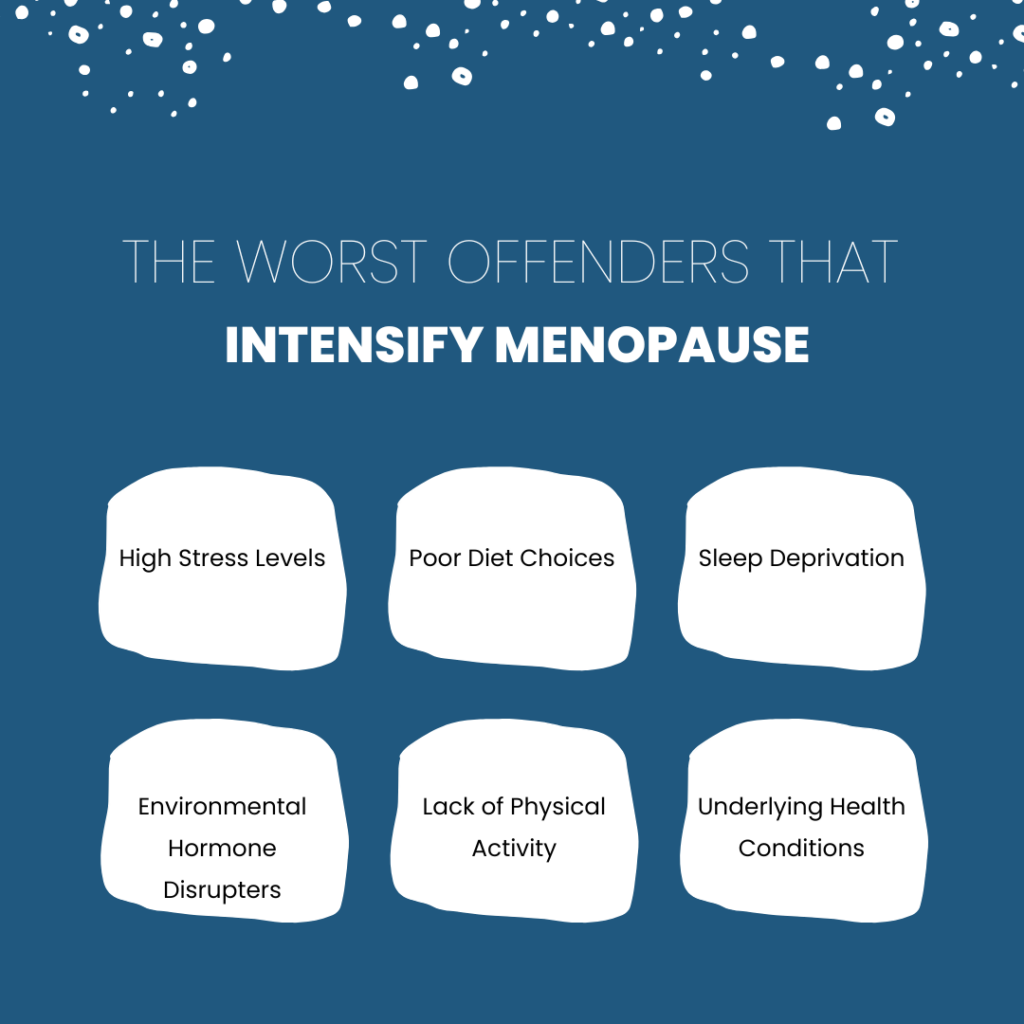
Each body is unique, therefore identifying personal triggers and adopting a balanced nutrition and lifestyle plan can make a significant difference in managing menopause symptoms.
High Stress Levels
- Impact: Chronic stress can worsen hot flashes, mood swings, and sleep disturbances. Stress triggers cortisol release, which can disrupt hormone balance.
- Solution: Stress management techniques like deep breathing, meditation, or gentle exercise can help reduce symptoms.
2. Poor Diet Choices
- Impact: High sugar, caffeine, and processed food intake can make symptoms worse. These foods can cause blood sugar spikes, inflammation, and may intensify hot flashes and mood swings.
- Solution: Focus on a diet rich in whole foods, including fruits, vegetables, lean proteins, and healthy fats.
3. Alcohol Consumption
- Impact: Alcohol, especially red wine, can trigger hot flashes and disrupt sleep. Alcohol also affects estrogen metabolism, potentially worsening symptoms.
- Solution: Limiting alcohol intake may help reduce symptoms like hot flashes and night sweats.
4. Lack of Physical Activity
- Impact: Inactivity can exacerbate symptoms such as mood swings, weight gain, and sleep disturbances.
- Solution: Regular exercise, even gentle activities like walking, can help regulate mood, support sleep, and promote hormonal balance.
5. Smoking
- Impact: Smoking can lead to earlier onset of menopause and intensify symptoms like hot flashes and cardiovascular risk.
- Solution: Quitting smoking may help reduce menopause symptoms and improve overall health.
6. Sleep Deprivation
- Impact: Poor sleep can worsen fatigue, mood swings, and stress levels. Sleep disturbances are already common during menopause, so lack of rest can exacerbate other symptoms.
- Solution: Prioritizing good sleep hygiene and addressing sleep issues can help alleviate symptoms.
7. Hormone Disruptors in the Environment
- Impact: Chemicals in plastics, certain personal care products, and household cleaners can mimic or disrupt hormones, potentially worsening symptoms.
- Solution: Opt for natural or non-toxic products when possible to minimize exposure to hormone disruptors.
8. Underlying Health Conditions
- Impact: Conditions like thyroid disorders, adrenal fatigue, and insulin resistance can intensify menopause symptoms.
- Solution: Managing any underlying health issues with a healthcare provider can help alleviate some of the menopausal symptoms.
Contact me for a customized plan that works for you!


